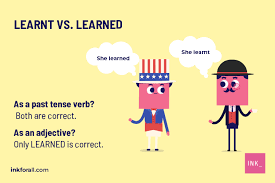This is a place-holder for the snippets file for the first part of 2021.

I am assuming that we make progress with the vaccination programme that deals with the coronavirus SARS-CoV-2. I expect to report on that as the numbers drop, continuing with a monthly page as I have done since March '20, Essay 291.
I expect to also continue to report on the Brexit disaster. On Dec 9th, BoJo began preparing us for a No Deal exit, called by him the Australian model, as if it is a good thing and a favour granted by the EU. We may yet get something 'over the line' but it will be absolutely no better than Mrs May would have managed and probably a good deal worse, so to speak: Boris has made a good deal worse, thanks largely to his fundamental ineptitude, which amounts to a refusal to face facts or truth.
I am already wondering, early 202012, how Britain might look by the end of 2021. If I were in Scotland I'd already be looking for a referendum on disunification and I might hope that the English response is to—rapidly—devolve England so that we have some sort of federated Britain that makes Scotland want to remain within the fold. If such a carrot is not offered, Scotland will separate and rejoin the Eu just as quick as it is able–and many English will move north, too. If we could guarantee work for the boss, that would include us. Ireland remains far more of a problem and what England wants is for Ireland to unite. The Irish are not so definite, but it has been thus since before Cromwell.
_______________________________
1918 Spanish Flu. About a third of the world population were infected, some 500 million people. At least 50 million died. World population at the time maybe 1800 million (worldometers). maybe 1900 million. So the population is twice the estimate in the inserted image and so the death fraction was 2.6% and 2 s.f. is quite sufficient. Say 2-3%, but some versions of the figures put is at 4% or even 10%.
The Asian flu pandemic of 1957/8 killed between 1 and 4% of the 2.9 billion population and infected more than 500 million. Wikipedia.
In a typical year for flu we have between 300 and 650 thousand deaths blamed on the flu and a range of numbers for infection from 250 million to 1600 million on a population of 7.75 billion. So this is under a 0.01% fatality of the population and anything from 3 to 20% of the population being infected. Bear in mind that the incidence and fatality is significantly reduced by vaccines and inoculation; imagine the deaths being around the 1958 figure if we did not inoculate.
In 2020, population remains at 7.75 billion, recognised infections are around 75 million but might easily be five or ten times that, and deaths are (mid December 1.67 so estimating for the end of the year) around 1.8 million (worldometers). So that deaths at 0.023% (0.0215 today, mid-Dec).
We may well simply add covid to the collection of respiratory diseases that affect every winter, in which case we'd record 2020 as adding its figures to the usual deaths (less a little overlap), so we might be looking at a long-term view of 2020 as having (1.67+0.65 less overlap, say 2 million deaths) and say 0.025%, which is 2.5 times the 'usual' typical loss. Bad, but as nothing in comparison to 1958 or 1918.
So I disagree with the numbers in the inserted image, but agree with the sentiment.
– – – –

I have long been interested in the use of English, especially in the use of precise English. Conversely I have long decried the use of sloppy language, especially where precision is needed. So I was happy to be sent a pdf of Current Changes in English Syntax, Christian Mair, who is a Professor of English Linguistics in Freiburg (that's in Breisgau, Baden-Wurttemburg, Germany and properly called Albert Ludwigs Universitat). You can read the whole thing for yourself, of course, or you can take by synopsis. As ever, what I've done is write what I wanted to (have provided for me) to read.
Here's a little list of changes that have been identified as going on — suspected to be going on, is the way the paper covers this:-
a. a tendency to regularise irregular morphology (e.g. dreamt/dreamed). I find this confusing, but the dictionaries I check spelling in all agree that the regularised form is available. Since I live with a second-language English speaker, we tend to go with the regular form whenever possible – not least because it causes fewer people to attempt a correction. learned/learnt, spelled/spelt, burned/burnt, smelled/smelt, hung/hanged. I'd argue with several of these, especially the last. We agree that there is confusion whether the regular form is -ed or -t. I find I have preferences for the -ed form and wish to use the -t form when the participle is used as adjective: I may have burned the toast, but the result was we ate burnt toast. We learned content from the book, resulting in learnt material. But I'd refer to our learned teacher by pronouncing that adjective as learn-ed. I like to think I'm ahead of the game here. Subsequently I found the image included.
b. revival of the "mandative" subjunctive, probably inspired by formal US usage (we demand that she take part in the meeting). Oh, please, what? On looking this up, there are, apparently two surviving forms of subjunctive in common usage, (a) the mandative [occurring in that-clauses following certain controlling items such as the verb suggest] and (b) the were-subjunctive [signalling hypothetical meaning]
Examples: (a) Yesterday, he had suggested that he sleep in the spare room from now on. (b) It felt as if she were alone in the world.
c. elimination of shall as a future marker in the first person. A general decline in the use of shall has been occurring. Shown to be true in the corpus studies (large bodies of collected text which are then subjected to things like word count for frequency tables). Down more than 40% between 1961 and 1991. Ought and need are also declining in use.
d. development of new, auxiliary-like uses of certain lexical verbs (e.g. get, want – cf., e.g., The way you look, you wanna / want to see a doctor soon). I hate this, the increasing use of gonna and wanna, both of which I have enough problems with just in oral use. table 3 of the paper shows the decline in the use of modal auxiliaries across the corpora. I see this as want replacing ought and need.
e. extension of the progressive to new constructions, e.g. modal, present perfect and past perfect passive progressive (the road would not be being built/ has not been being built/ had not been being built before the general elections). This application of being shows an 18% increase in British English from '61-'91. This displaces the no-longer acceptable 'dinner was preparing' with 'dinner was being prepared'. The (passive progressive) phrase 'is being held' shows a remarkable jump in frequency, 30%.
f. increase in the number and types of multi-word verbs (phrasal verbs, have/take/give a ride, etc.)
g. placement of frequency adverbs before auxiliary verbs (even if no emphasis is intended – I never have said so)
h. do-support for have (have you any money? and no, I haven't any money do you have/ have you got any money? and no, I don't have any money/ haven't got any money)
The group above associate with the verb phrase, while the next few belong to the noun phrase. Like we care?
i. demise of the inflected form whom. I'm not at all sure about this. Whom is often replaced by who anyway; I see its correct usage as being when referring to the object of a verb (or preposition, when I looked it up). Simple test: if you'd have replaced it with him or her, it should be whom. Who refers to the subject of a sentence. Maybe the 'inflected form' means something special? No, whom is the inflected form of who, as those is the plural of that. Source.
j. increasing use of less instead of fewer with countable nouns (e.g. less people). Agreed and detested. Fewer applies to countable nouns, meaning integers, while less applies to all reals. I would far prefer fewer to be used whenever the nouns is countable; the modern thinking is that less applies to reals, which include the integers. I still hate it; sloppy.
k. spread of the s-genitive to non-human nouns (the book's cover) The corpus studies show this to be on the rise. I'm so distracted by the misuse of the apostrophe that my eye tends to pause on every use of that character.
l. omission of the definite article in certain environments (e.g. renowned Nobel laureate Derek Walcott)
m. "singular" they (everybody came in their car). Add to this the 'new' pronoun themself.
n. like, same as, and immediately used as conjunctions.
o. a tendency towards analytical comparatives and superlatives (politer / more polite)
These last three belong to neither phrase.
I liked this sentence, referring to written English steadily becoming more like the spoken forms – which I recognise, having been accuse of this myself in the 1960s:
A comprehensive trend towards colloquialisation ....would represent a clearly dysfunctional development, making it difficult for the written language to fulfil one of its primary functions, which is the compression of information.
DJS 20201221